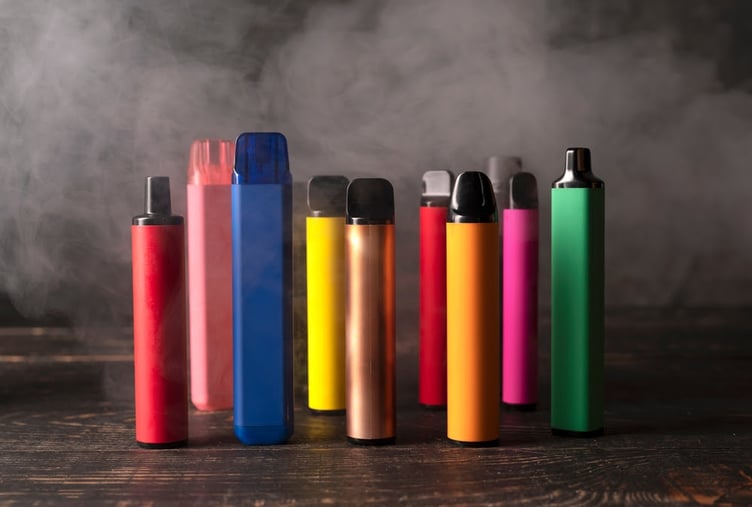A new lap on vaping will propose that police have powers to seize products from under 18s in public places.
It follows a consultation by the government on the Vapour Products Bill 2023, now known as the Vaping Products Bill 2023.
A few amendments have since been made to the Bill, such as enhancing the controls on the display of the products, removing advertising of vaping products in retail premises, and only allowing the products to be displayed to persons over the age of 18.
Police would have the powers to seize and dispose of vapes being used by under 18s in public places. The consultation on the new law received submissions from 308 people.
Of these, 294 were from members of the public, five were from vapour products retailers, five were on behalf of public bodies, and the rest were a manufacturer of tobacco and vaping products, a Manx advocate, a member of Tynwald, and a trade union.
The original bill proposes the prohibition of the sale or supply of vaping products and devices to under 18s, placing controls on how these products and devices are displayed at the point of sale, and providing for regulatory standards for vaping products.
There was concern over the large number of children vaping or vaping in schools, shown by 33 respondents.
Many were supportive of the need for better regulation of vapour products labelling (92 responses) and health warning labelling, which could be introduced in line with UK regulatory controls or Isle of Man specific legislation.
These responses also highlighted the potential difficulties and costs on retailers of complying with the proposed regulatory controls with suggestions for alternative controls on displays (eight responses) and requiring vapour products to be sold from behind the counter (seven responses).
Those who felt there must be further controls for vaping products were supportive of the measures but suggested these could be extended.
The main focus was on removing vapour products from being visible at the point of sale (97 responses) or having the sale of vapour products regulated in a manner similar to tobacco (85 responses).
Sixty-eight responses highlighted concern about the potential impact of vaping on an individual’s health and the effect on the persons around the person vaping.
Seventy-eight also suggested the use of vapour products in public places should be regulated.
Making vaping less visible was also supported with responses advocating for partial or complete bans on vapour product advertising, controlling advertising of such products to children and regulating the flavour of such products to make them less attractive.
A number of respondents were opposed to there being any exceptions for allowing the sale or supply of vapour products to persons under 18 (62 responses) by their parents or anyone else.
There was significant concern expressed in 68 responses as to the health impact of persons’ vaping and those around them, and respondents suggested the age for buying vapour products should be increased to 21 or 25.
For those who felt there needed to be minimal regulation, responses to the Bill were of the view that no legislation is required (19 responses) or more evidence would be needed to support legislation (19), along with the view that vapour products as harmless (five responses).
These were often of the view that retailers were taking sufficient voluntary measures to control the sale of vapour products, with no need for lockable cabinets, and there was little need for regulatory controls or enforcement powers as a consequence.
Thirty-eight responses wanted complete, or near complete, bans on the sale and use of vaping products. A similar approach is currently taken in New Zealand and Singapore.
These responses often made the case for stricter regulatory controls than the UK, greater enforcement generally and in schools.
From a retail perspective, if the sale of vapour products were allowed it would only be for people over 21 or even over 25.
Public Health says it will engage with the Department of the Environment, Food and Agriculture on regulating the use of single-use vaping products and undertake further engagement with young people.
The first reading of the bill will be done on Tuesday, June 13, by Kate Lord-Brennan.


.jpeg?width=209&height=140&crop=209:145,smart&quality=75)
.jpeg?width=209&height=140&crop=209:145,smart&quality=75)
.jpeg?width=209&height=140&crop=209:145,smart&quality=75)
Comments
This article has no comments yet. Be the first to leave a comment.